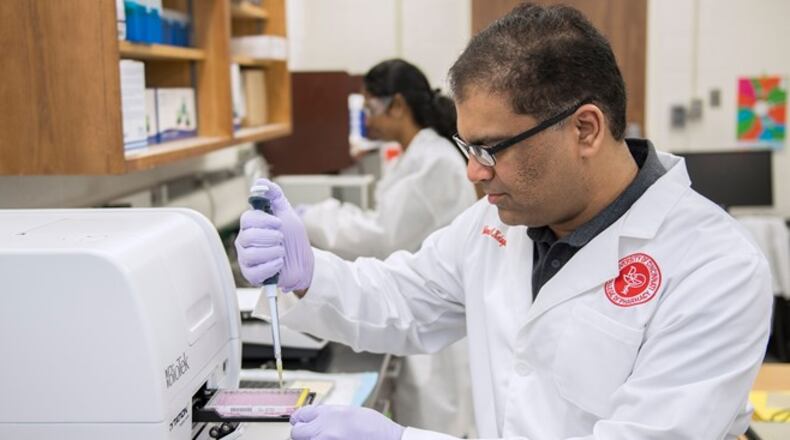Kotagiri studies “solid cancers” or those defined as abnormal cellular growths in “solid” organs such as the breast or prostate, as opposed to leukemia, a cancer affecting the blood, a release from OC states.
“Kotagiri explains many solid cancers have an extracellular matrix made up of collagen and hyaluronic acid. The matrix forms a barrier around the cells and makes it harder for antibodies and immune cells to reach the tumors,” the college said.
Shindu Thomas is the first author of this study and a graduate student in the Kotagiri lab. Thomas worked with E. coli Nissle, a bacteria that has been used as a probiotic for around 100 years and is different from E. coli strains that cause sickness.
“After creating the new probiotic, researchers studied the bacteria’s effect on animal models of breast and colon cancer,” said the release. “The bacteria is delivered intravenously about four or five days prior to the cancer treatment, allowing the bacteria time to populate and break down the cancer’s defenses and prepare it to take to the treatment.
“After administering the bacteria and then subsequent doses of either immunotherapy or another pharmaceutical, drugs used in targeted therapy, Kotagiri said mice survived twice as long compared to those given the cancer therapy alone. Imaging showed the bacteria and enzyme were effective at breaking down the extracellular matrix and allowing the therapy to reach the cancer cells,” the release said.
“The study found the bacteria affected the tumors but was not attacking healthy cells in other organs like the heart, lungs, liver and brain. Kotagiri said this shows the bacteria can be safe and will not cause infection in other parts of the body, but more research needs to be done to examine its safety in large animal models and potentially humans, particularly in immunodeficient environments.”
“This always comes with a word of caution as to how you can utilize this strategy without causing any sepsis or any overt infections in the body,” he said.
More research will occur to discover whether the engineered bacteria can be effective to treat diseases in the gut, mouth and skin.
About the Author
